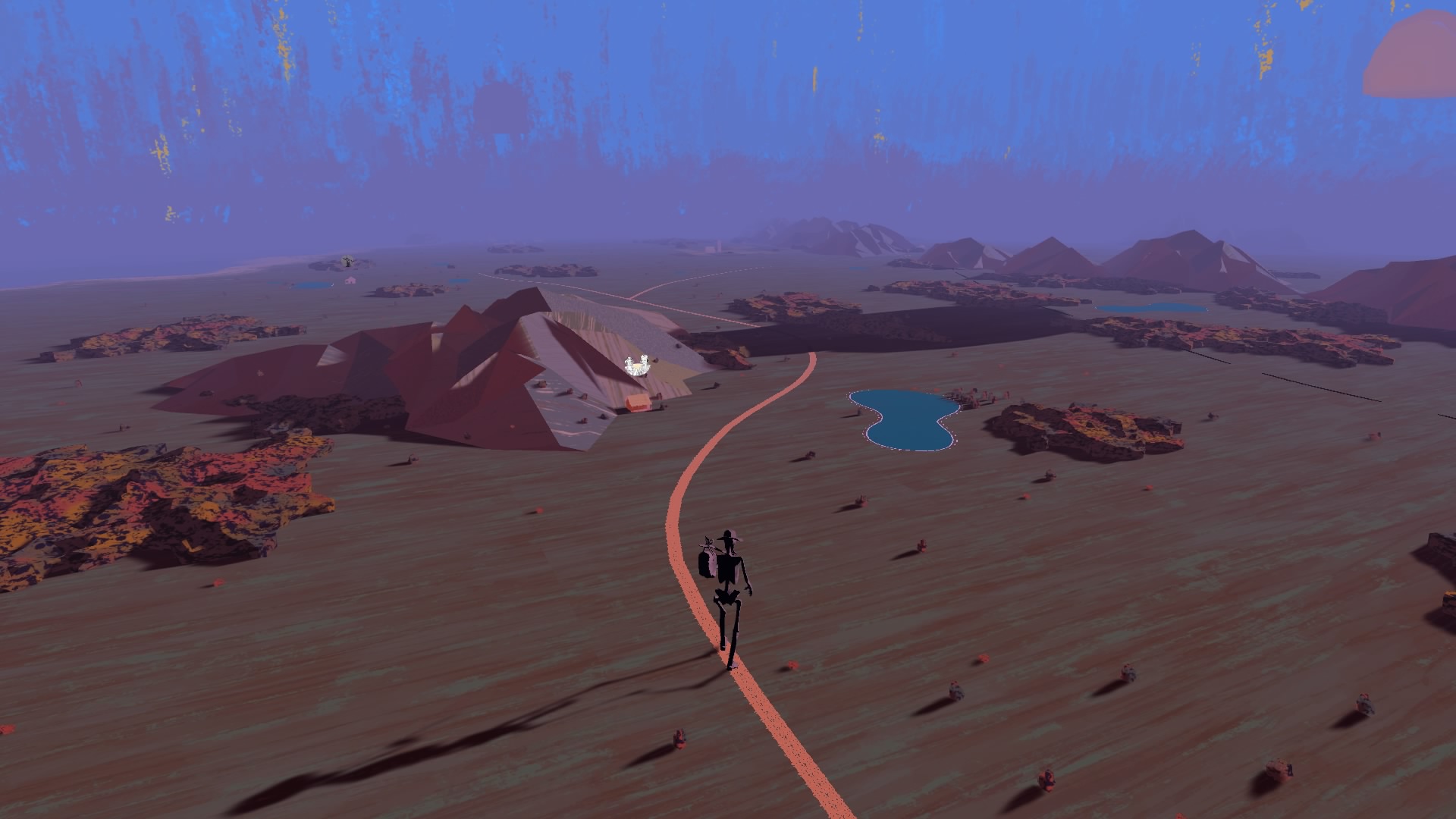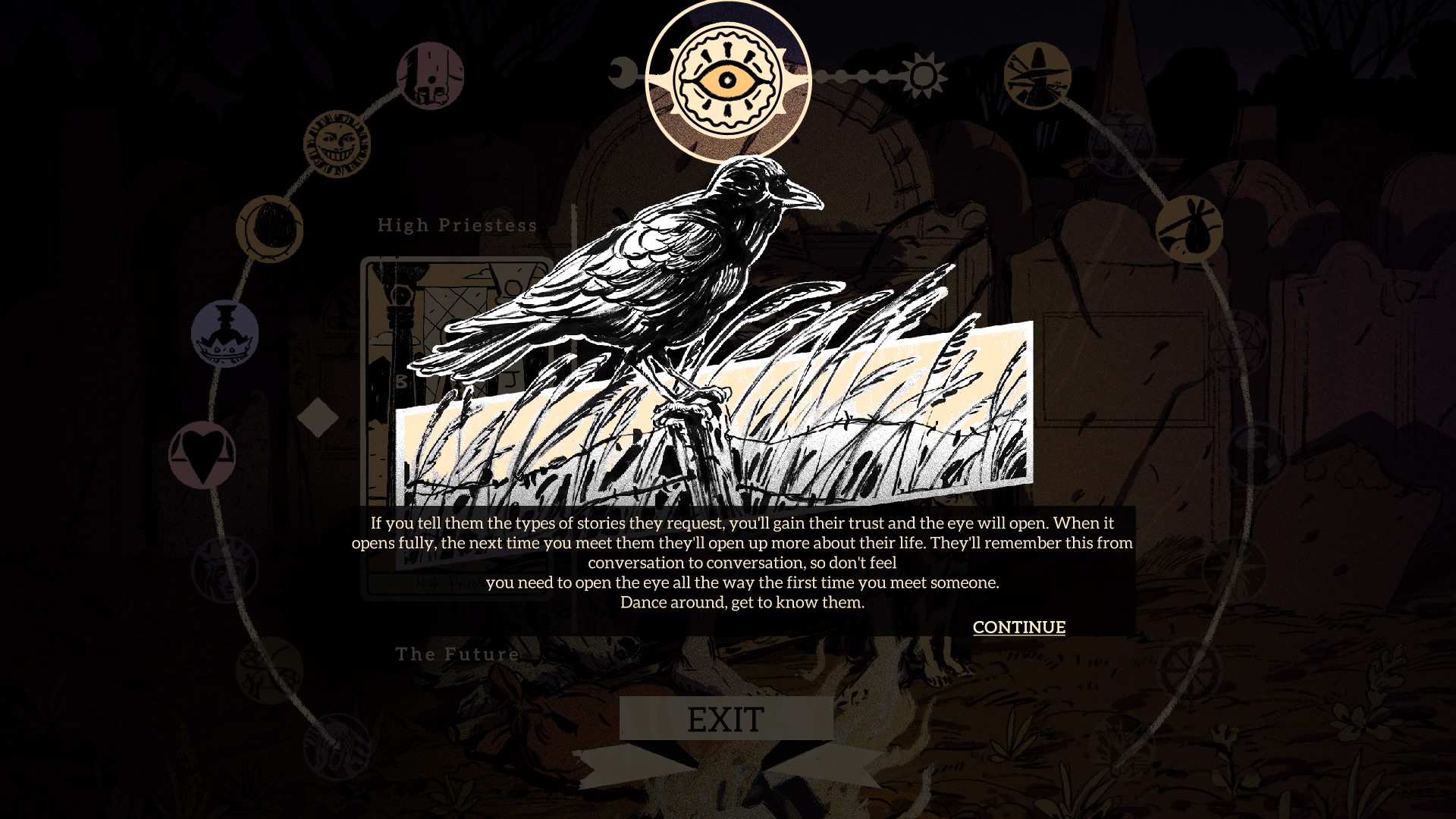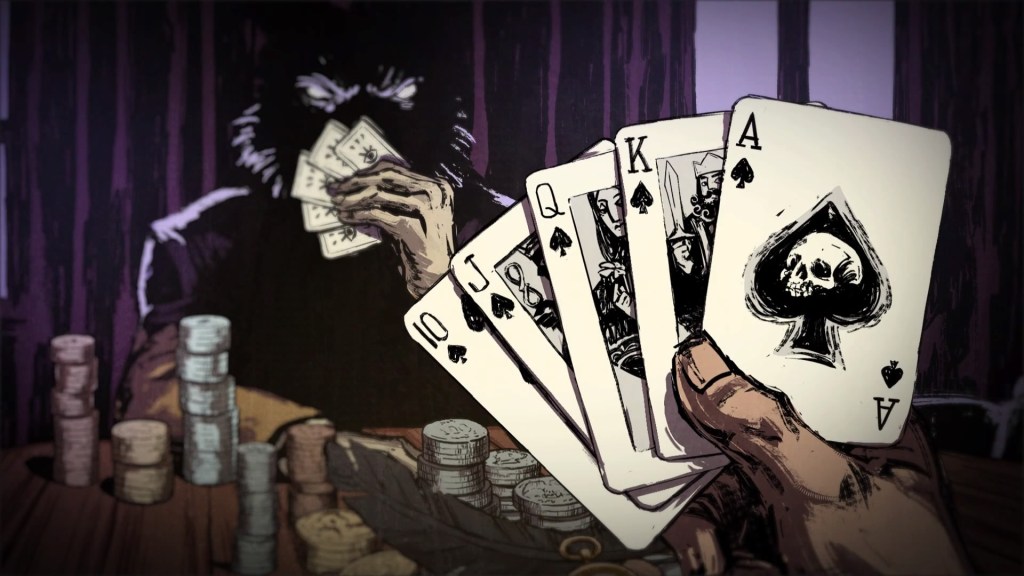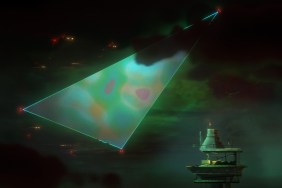I remember when I was in grade school, learning about the tall tales of characters like Johnny Appleseed or Paul Bunyan and completely missing the point of these legends. Unlike other stories that were birthed thousands of years ago or had huge volumes dedicated to their analysis, the phenomenon of the “American Tall Tale” was a relatively new concept that grew out of the country’s rapid expansion. But that was about where my interest in these more modern-day myths came to an abrupt end. Thankfully, Where The Water Tastes Like Wine explores this phenomenon in more depth through the lens of emergent gameplay, and almost two years after its original release, it’s now on PS4. Does it deliver a quest worth sharing, or is it just too unbelievable to be true?
Betting It All
What better way to start a game than observing a hand of poker after going all-in? Only upon seeing the flop do two facts become obvious: 1) You lost the hand and 2) You lost to a wolf. That’s right. You didn’t just misread that. You lost a hand of cards to a wilderness beast voiced by none other than legendary singer Sting. It’s stories like this that effortlessly set the stage for the game’s core narrative conceit: exaggerated storytelling. In exchange for the player’s soul, the direwolf leaves players to wander the American countryside during the depression era in search of stories.
It may seem a bit odd at first, but the game’s main mechanic revolves around consuming brilliantly written and performed stories that play out over the course of travel. These bursts of exposition also share an equally beautiful art style, further helping to flush out the narrative. Through witnessing these events firsthand, the player then acquires these tales to share with other travelers that are encountered while aimlessly wandering from the Great Plains to the Dust Bowl, and beyond.
For every frame of beautiful art style portrayed during the course of storytelling, it leans just as strongly in the opposite direction when exploring the map itself. The player is represented by what appears to be a tremendously oversized vagrant, traversing the map at a painfully deliberate pace. It only takes a few minutes to trek across an entire state, but honestly, it’s simply a way to chain together disparately located points-of-interest. Each town has its own stories to consume, and it’s up to the player to explore every nook for the next undiscovered narrative nugget.

Spinning a Yarn
Numerous times throughout the campaign, players will get the chance to engage with other fellow vagrants in a bit of story swapping around a burning barrel or campfire. This is where expository exploration primarily comes into play. Each of these characters has their own handful of tales to tell as well, not to mention a rich backstory to explore. Initially, these fellow wanders start out bluntly asking for a scary or funny story and it’s up to the player to meet these requests. Using tarot cards to represent each story that has been uncovered over the course of the adventure, individual tales can be told, meeting the extremely specific needs of each particular audience.
The dynamic of trying to find the right anecdote to satisfy this one specific individual seems slightly confusing at first. It’s a glorified process of trial-and-error, but it doesn’t take long for each story’s thematic elements to make more sense. Discerning the proper narratives eventually becomes second nature, which is a blessing to say the very least. However, it’s important to note that once a story has been told to a given traveler, that card is no longer available to be used in future encounters with the same person. Much to my dismay, all of this has to be found out through making a huge batch of mistakes early on. Let’s just say that the developers didn’t seem to think that instructions were needed for a majority of the key mechanics.
The effects of these interactions with other travelers actually work twofold. For one, the fireside chats build a rapport between wanderers. The more that they trust you, the more of their own personal backstory they divulge. Furthermore, this increased engagement also raises the likelihood that they will take one of your experiences and help orally build upon its legend by sharing with others. Trust me when I say that there’s nothing more amusing than uncovering a random newspaper while exploring, only to find that the headline is actually describing a facsimile of your story, exaggerated and built upon through word-of-mouth.

Keeping Your Story Straight
One of the most difficult aspects of the game is trying to keep the different individual narratives straight. Considering that there are a staggering 219 stories strewn about the country, it’s only a matter of time before the lines begin to blur and confusion starts to set in. Eventually, the game turns into a glorified game of memory, where you end up regurgitating the same handful of tales that will check each narrative box.
Unfortunately, this repetitive cycle of exploration, storytelling, wash/rinse/repeat is where the freshness also begins to wear off. After a few hours of sauntering around the country aimlessly, I was faced with the revelation that this was all that the game had to offer. While I love an interesting storyline as much as the next person, it felt like there needed to be an additional evolution to the mechanics that never materialized. Even the otherwise outstanding soundtrack consisting of familiar aspects of Americana like bluegrass, folk and jazz began to weigh on my patience over time.
As an interesting intellectual exploration of the role that word-of-mouth plays in storytelling, Where the Water Tastes Like Wine plays like a proof of concept that never graduated beyond an initial prototyping stage. Sure, it has plenty of narratives to uncover, but ultimately the repetitive, shallow mechanics prevent the experience from meeting its full potential. Despite the best efforts of the excellent visual presentation and voice acting, the net product is a hollow shell of what it could’ve been.
Where the Water Tastes Like Wine review code provided by publisher. Reviewed on a launch PS4. For more information on scoring, please read our Review Policy.
-
During storytelling sections the art direction is amazing
-
Solid voice-acting drives home compelling storylines
-
So much narrative to uncover
-
Traversing the map is so ugly
-
There are too many stories to remember
-
Gameplay never really evolves from its initial introduction
-
Plays like a proof of concept more than proper release








